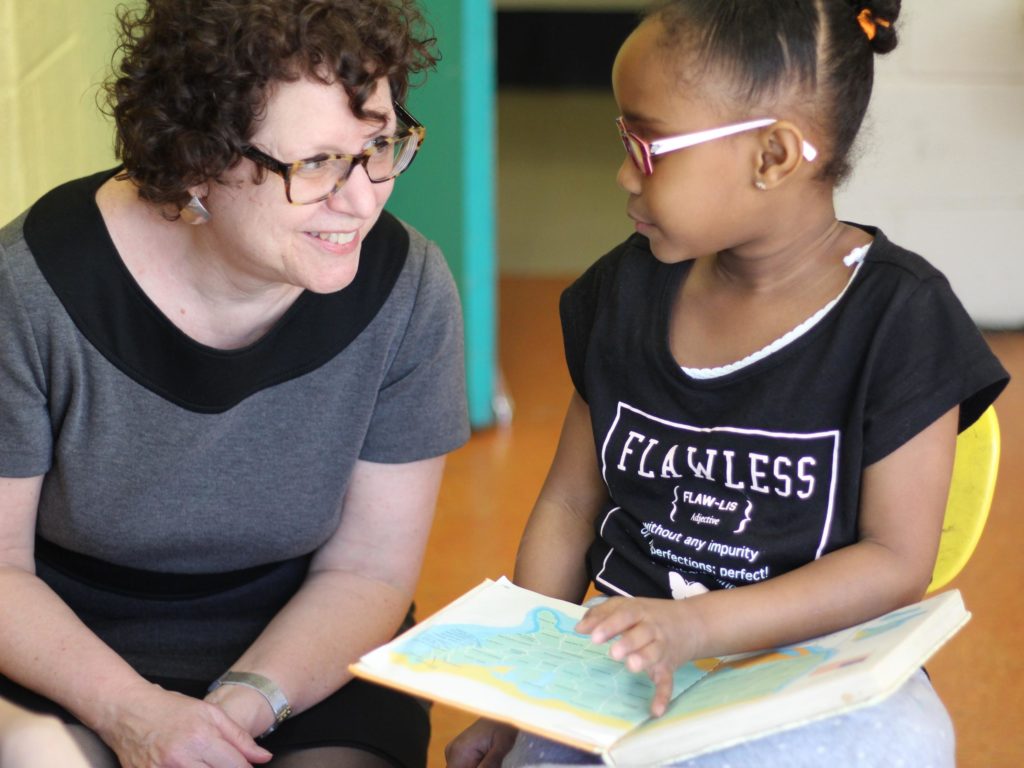
Watching children romp at our Early Childhood Education Centers, you can see girls and boys playing in the same ways: building towers of blocks, splashing at the water table, rolling wooden trucks across the floor. But research shows that from an early age, children begin absorbing gender-based messages about which kinds of activities are right for them — and which ones aren’t.
“One study found that when girls did well in math, adults said they worked hard,” Susan Matloff-Nieves, our Deputy Executive Director for youth programs, explains. “When boys did well, they were told they were good at math.” Another study found that when teachers graded anonymous math tests, girls ended up with higher scores than boys. But when the teachers knew the gender of the test-takers, the results were reversed.
Differences like these add up. They can discourage talented young women from pursuing STEM— Science, Technology, Engineering and Math — in school and careers.
Matloff-Nieves isn’t just interested in the biases girls face; she literally wrote the book on the subject. Breaking Through!: Helping Girls Succeed in Science, Technology, Engineering, and Math, which she co-authored with two other experts on youth, was published in 2016 by Prufrock Press.
People are usually unaware that they’re treating kids differently based on their gender, Matloff-Nieves says: “Everybody means well, but there are a lot of unconscious biases.”
Fortunately, there are ways to combat these biases. Here are some tips:
- Encourage curiosity: Let children get messy. Let them explore and find things out for themselves. Ask them to explain what they’re discovering, and listen to what they say. “If your six-year-old draws a picture, don’t just tell them it’s a beautiful picture. Ask them what it’s about,” says Matloff-Nieves. “The process of making meaning is very important.” Show your own curiosity by asking questions and looking things up.
- Destigmatize mistakes: Mistakes are how we learn — and key to scientific and engineering pursuits! Instead of jumping right to criticism or punishment, help your daughter figure what went wrong and why. “This can literally be as simple as, ÔYou knocked over the milk. What did you learn from that?'”
- Model a persistence and growth mindset: “Show your children how to keep trying. You want them to have the attitude that ÔI can’t do it now but I will eventually.'”
- Critique the media: “Look around you and ask what the images you see are saying about gender,” Matloff-Nieves advises. “They can be good or bad. For instance, there’s the recent example of the pilot who landed her airliner after one of the engines suffered a catastrophic failure. What a great role model! On the other hand, there are still TV commercials around that suggest women’s only role is housework.” Talk about these images with the girls and young women in your life. Recent research suggests that being aware of societal biases helps young people overcome them.
All of Goddard Riverside’s programs for children and youth are STEM-rich environments. At our Beacon program, young people are learning robotics; at the Bernie Wohl Center, the after-school program teaches computer coding. Our 95th Street Head Start visits the American Museum of Natural History for a weekly science program. Our Lincoln Square Neighborhood Center offers a STEM curriculum and a computer room. In addition, Matloff-Nieves and her deputy Steven Portericker have worked with the staff on consciously fighting gender bias.
Lastly, Matloff-Nieves says you shouldn’t feel like you need a math degree to encourage your daughter to pursue technical subjects.
“You’re already using STEM every day,” she says with a laugh. “You use chemistry when you cook, because you combine the ingredients and transform them in the process. You shop on a budget so you’re doing math at the store. When you play Jenga” — the game where players take turns removing wooden blocks from a tower — “that’s engineering. Even playing checkers, you have to think ahead and calculate the moves.
“When you think about the things you do every day that involve math and technical abilities, the list goes on and on!” Matloff concludes. “Every adult can find ways to support girls in gaining STEM skills.”